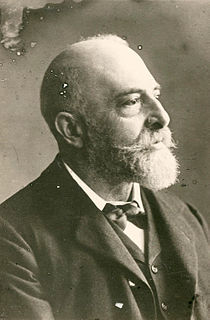A Quote by Daniel Goleman
There are some surprising payoffs with only a few minutes' practice, like eliminating the loss of concentration that multitasking usually brings. Short daily mindfulness practice in beginners also improves memory, to the point that a group of students who volunteered for a study got significantly better scores on their graduate school entrance exams.
Related Quotes
The point is not how long you meditate; the point is whether the practice actually brings you to a certain state of mindfulness and presence, where you are a little open and able to connect with your heart essence. And five minutes of wakeful sitting practice is of far greater value than twenty minutes of dozing!
The right kind of practice is not a matter of hours. Practice should represent the utmost concentration of brain. It is better to play with concentration for two hours than to practice eight without. I should say that four hours would be a good maximum practice time-I never ask more of my pupils-and that during each minute of the time the brain be as active as the fingers.
Study and practice are both very important, but they must go hand in hand. Faith without knowledge is not sufficient. Faith needs to be supported by reason. However intellectual understanding that is not applied in practice is also of little use. Whatever we learn from study we need to apply sincerely in our daily lives.
You are a Buddha, and so is everyone else. I didn't make that up. It was the Buddha himself who said so. He said that all beings had the potential to become awakened. To practice walking meditation is to practice living in mindfulness. Mindfulness and enlightenment are one. Enlightenment leads to mindfulness and mindfulness leads to enlightenment.
I did a series of classes in psychology (at the institute), .. The students that came to that class had children. And over a period of a few years, they decided they wanted a nursery school, a play group (to watch over their children while they were studying). So in one of the garages that was near where we were having the classes, we established a play group area and the students volunteered to supervise. That eventually led to building a state-licensed nursery school, which was approved by the California department of social welfare.
We should be able to bring the practice of meditation hall into our daily lives. We need to discuss among ourselves how to do it. Do you practice breathing between phone calls? Do you practice smiling while cutting carrots? Do you practice relaxation after hard hours of work? These are practical questions. If you know how to apply meditation to dinner time, leisure time, sleeping time, it will penetrate your daily life, and it will also have a tremendous effect on social concerns.
This is the practice school of writing. Like running, the more you do it, the better you get at it. Some days you don't want to run and you resist every step of the three miles, but you do it anyway. You practice whether you want to or not. You don't wait around for inspiration and a deep desire to run ... That's how writing is too ... One of the main aims in writing practice is to learn to trust your own mind and body; to grow patient and nonaggressive.
I have to throw in on a personal note that I didn't like history when I was in high school. I didn't study history when I was in college, none at all, and only started to do graduate study when my children were going to graduate school. What first intrigued me was this desire to understand my family and put it in the context of American history. That makes history so appealing and so central to what I am trying to do.































